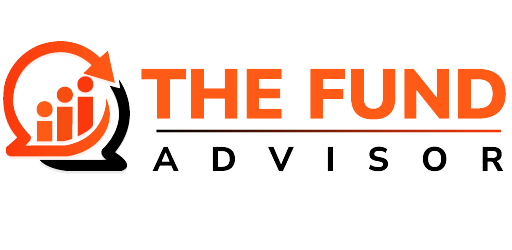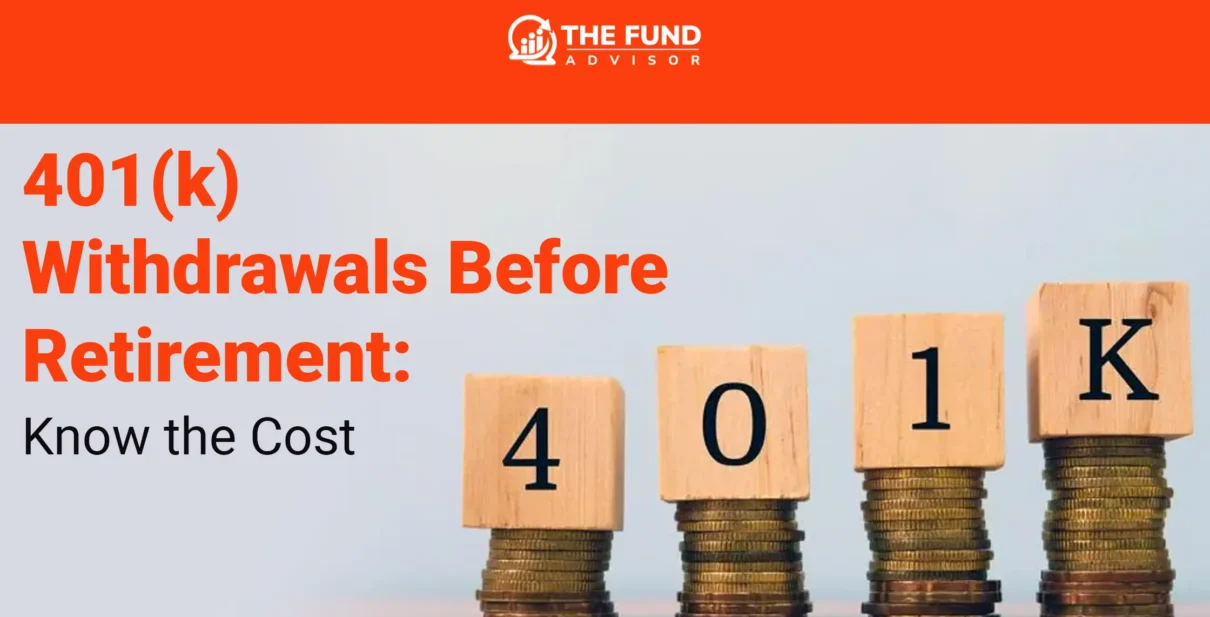- 09/23/2025
- by Christopher Anderson
- Retirement
When we talk about a 401(k) retirement savings account, which is a powerful financial tool that allows an individual to grow their money until they reach retirement age, one major concern is how to withdraw money from 401(k) before retirement is always skipped. And this is a valid question because sometimes life doesn’t go as planned.
Similar to this concern, people often ask, when to withdraw from 401(k). Before diving into retirement planning, it becomes essential to understand how early withdrawals work and whether there is any penalty or fee charged for early withdrawal. Let’s start.
Table of Contents
ToggleHow 401(k) Early Withdrawal Penalties Work?
401(k) is an employer-sponsored retirement savings account that is used to save enough money, which can help you live after retirement peacefully. Specifically, withdrawal from 401(k) accounts can be made only after retirement or at the 59½ years age.
The IRS (Internal Revenue Service) has set specific rules for early withdrawals from a 401(k) account. Usually, withdrawal from a 401(k) account before the age of 59½ years is considered an early distribution of funds and is subject to income tax because this is considered income, and a 401(k) withdrawal penalty will be applicable.
There will be a 10% early withdrawal penalty that will be applied to your withdrawal, and this income is also taxable. Sometimes, the early withdrawal becomes more complicated based on the account’s specific rules.
Also, there is a hardship withdrawal option that is present, but this can only be accessed in case of serious need for funds, and if the IRS allows it, then the employer must also offer the same provision.
Curious about which retirement plan suits you best? Check out our comparison of Roth IRA vs 401(k) to make an informed choice.
Exception To Early Withdrawal Penalty
How To Withdraw Money From 401(k) Before Retirement? Yes, it is possible, but with a penalty. However, there are some 401(k) early withdrawal penalty exceptions present that allow the account holder to withdraw money, where the 10% penalty will be waived under the IRS rules.
Common Exceptions May Include :-
- Permanent Disability : If you’re disabled permanently, then it is possible to get a 401(k) withdrawal without penalty.
- Medical Expenses : If you are encountering higher medical expenses (more than 7.5% of annual gross income).
- Substantially Equal Periodic Payments (SEPP) : Also called 72(t) distributions, where you take equal withdrawals over your life expectancy.
- Leaving Job : If you leave your current job, then you can roll over the 401 (k) account into a new 401(k) or an IRA account.
- Birth : In the case of adoption or birth, at most $5000 can be withdrawn by the parents.
- Military Service : Qualified military reservists called to active duty.
These are all exceptions that need proof before withdrawing funds because the 401(k) account only provides income to people over the age of 59½ years, so early withdrawal needs approval.
How To Withdraw Money From 401(k) Before Retirement Without Heavy Penalties?
The focus is, how to withdraw money from 401(k) before retirement. So, for withdrawing money from the 401(k) account, there are various ways to do so :-
Loan On 401(k) Account
One of the options for withdrawing money from your 401(k) savings account is taking a loan on the vested money of the account. The money you borrow in the form of a loan will be paid with interest.
The loan amount is 50% of the vested money or $50,000. This withdrawal option prevents penalties and fees. The loan tenure is generally 5 years, and if the loan is repaid within this tenure, no income tax or penalty will be applicable. The money you borrowed will again be deposited in your account when the loan is repaid.
However, if you leave the job during the loan tenure, you need to repay the full loan amount before leaving, otherwise your 401(k) account will be seized or terminated.
Hardship Withdrawal
This is the direct method of withdrawing funds from the 401(k) account. This is directly subject to taxation, and the 10% penalty will also be applicable in this case.
In this, you can withdraw funds directly, and the funds will not be deposited or contributed to the amount, as the withdrawal is permanent. Usually, it is not advised to choose this option for withdrawal. Because the penalties and permanent withdrawal of the retirement savings will be reduced.
Also, to qualify for hardship withdrawal, you need to prove the reason. The common reasons for which hardship withdrawals can be accessible are medical expenses, purchase of primary residence, funeral expenses, and foreclosure.
Withdrawal After 59½ Years of Age
This is a most favourable and organic way to withdraw funds from your 401(k). When you hit the age of 59½ years, you can withdraw funds without any penalty or fees. Although this withdrawal is always considered taxable income.
Tax Implications On Early Withdrawal
First, how to withdraw money from 401(k) before retirement, the ways are mentioned above, but there are always taxations applicable on the withdrawal from your 401(k) savings account, before 59½ or after.
This is because the contribution made in the 401(k) is transferred from the employee’s pre-tax income, so the withdrawal from this account is always considered as a normal income, and taxation is applied to it.
The tax applied is based on the current tax bracket, and if you withdraw early, then a penalty is also added.
For Example :-
If you withdraw $20,000:
Income tax (24% bracket) = $4,800
Penalty (10%) = $2,000
Net amount after taxes and penalties = $13,200
According to this example, approx. 34% of the amount will be lost to the tax and penalty. This taxation can vary based on the current market situation and the IRS.
How To Withdraw Money from Your 401(k)?
Instead of penalties and taxation, if you find out that early withdrawal is your last option, then here is the step :-
- First, you need to review your 401(k) account rules and terms.
- Then, contact your related HR department and apply for early distribution.
- At this stage, you need to choose between a loan, a hardship withdrawal, and a SEPP schedule.
- Then the department will tell you the taxation and other information.
- The withdrawal will require various documents that you need to submit in the application process. Here, the review of the need for which you are withdrawing funds continues.
- After the complete review and check, the funds will be available to you.
How to withdraw money from 401(k) before retirement? Following these steps will let you access the funds of your 401(k) savings account. Before disturbing your 401(k)-saving account, you need to review the reason for the withdrawal. If you can do things without this withdrawal, then avoiding it will be the best thing.
How COVID-19 Changed 401(k) Withdrawal Rules?
When the COVID-19 pandemic hit the population across the globe, 401(k) withdrawal rules changed slightly. A new law named the CARES Act was launched to help individuals in such situations. It offers relief to individuals who need instant financial assistance. Under this act, eligible candidates can withdraw up to $100,000 from their 401(k) account without facing the 10% early withdrawal penalty.
- No Penalty Over Distribution: In the year 2020, eligible individuals can withdraw money from their 401(k) account without paying the 10% early withdrawal penalty.
- Taxations: The tax implications on the withdrawal amount can be spread over three years, which helps in reducing the annual tax burden.
- Eligibility: Individuals affected by COVID-19 who have experienced job loss or who are facing medical expenses, etc, are eligible under this act.
- Repayment: An Individual who receives this offer can repay the withdrawn amount in the 401(k) within 3 years to avoid taxation.
- Impact: It helps individuals manage their expenses without losing their retirement savings potential.
The CARES Act has proven highly beneficial to individuals and their families in managing daily expenses, particularly during periods of job loss or high medical costs.
Impact Of Early Withdrawal On Retirement
Can you take money out of your 401(k) before you retire? Yes, but with some losses and limitations. As we all know that 401(k) is a growing retirement savings account, and early withdrawal simply means you are reducing your retirement savings. And in the case of hardship withdrawal, the funds are permanently cashed out and cannot be deposited again in the account, so the money that will grow with investment is reduced in this case.
With time, the contribution money will increase and the investment in it also increases, but when a person withdraws early from these contributions, the amount that is subject to general investment return will be reduced, and the loss of maximum potential profit will also be reduced.
Conclusion- How To Withdraw Money From 401(k) Before Retirement?
A 401(k) savings account is a tool that can make a solid foundation for your retirement life. So, the question of how to withdraw money from 401(k) before retirement is very exceptional. This is because the withdrawal from the 401(k) account is itself complex and reviewed by the IRS and its norms. And also, withdrawal from the 401(k) account is not usually suggested, but what happens if life does not go as expected?
In such serious situations, a 401(k) can be a good source of money to fulfill the current needs. But this withdrawal can be done in three ways: Loan, Hardship Withdrawal, and Withdrawal after 59½ years of age. The withdrawal contains an early withdrawal penalty if it happens before the retirement age or 59½ years of age. Always consult your HR department or an expert tax and fee advisor to avoid unnecessary losses.
If you find this article useful, then please follow us and share this with your family and friends.
Frequently Asked Questions
What is the smartest way to withdraw a 401(k)?
The smartest way to withdraw from your 401(k) account is to wait till your retirement or age 59½ years to avoid the 10% penalty with taxation. There are some other ways to access funds like hardship withdrawal and taking 401(k) loan. However, loan is a good option because unlike to hardship withdrawal the funds ae again deposited in the account.
How much of my 401(k) will I get if I withdraw early?
You can borrow up to 50% or $50,000 from your 401(k) retirement savings account as a loan which not subject to penalty but an interest applied for a term of usually 5 years.
How much tax will I pay if I withdraw my 401(k)?
There is no exact tax percentage because, based on the current tax bracket, the tax may vary. Also, you don’t need to pay taxes twice because the contribution made in the 401(k) account is from your pre-tax income or from the gross salary, and tax is applicable at the time of withdrawal.
When do I pay the 10% early withdrawal penalty?
The penalty for your early withdrawal amount will be paid when you file your current year income tax return. The penalty will be added to this income tax return and paid to the IRS.






